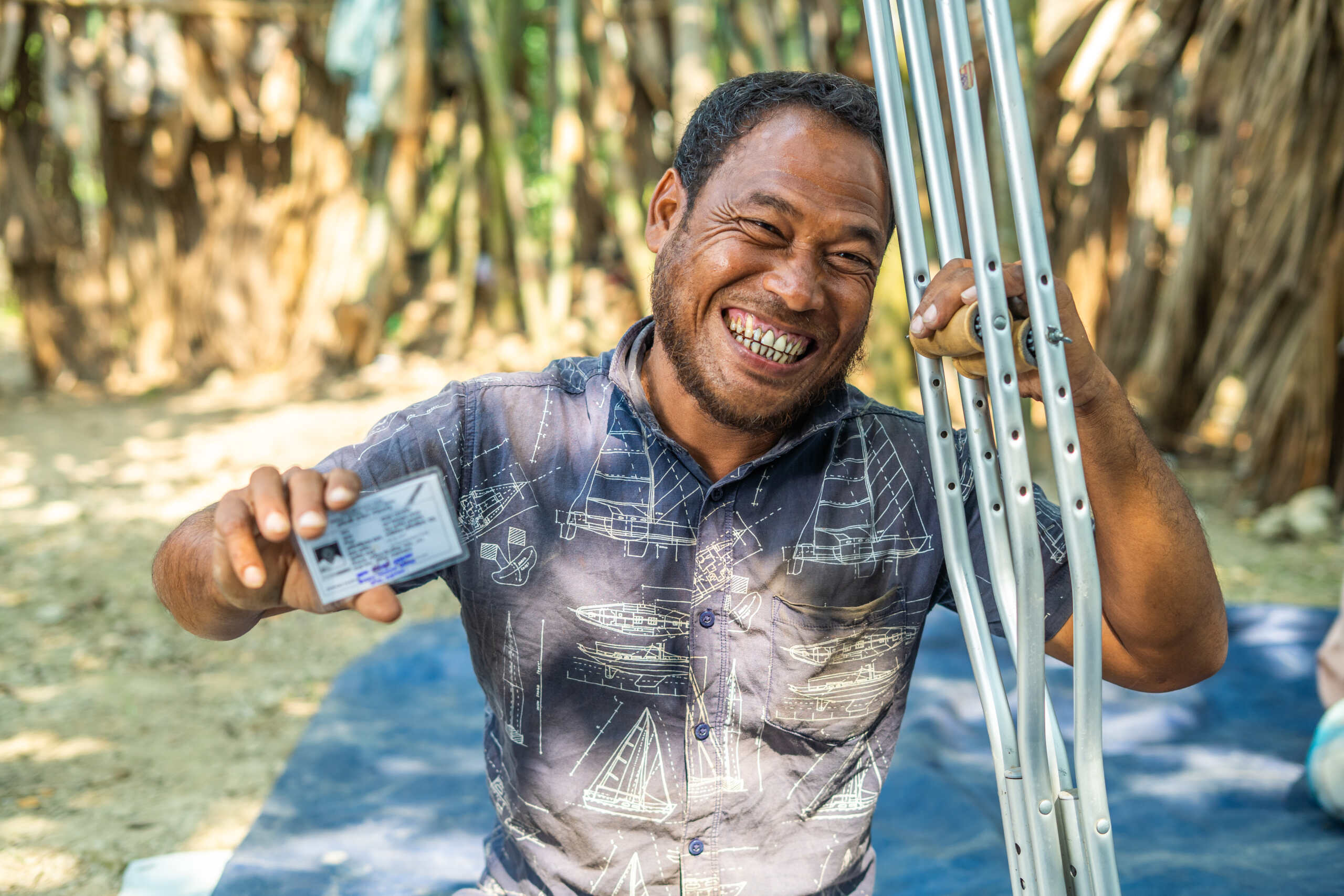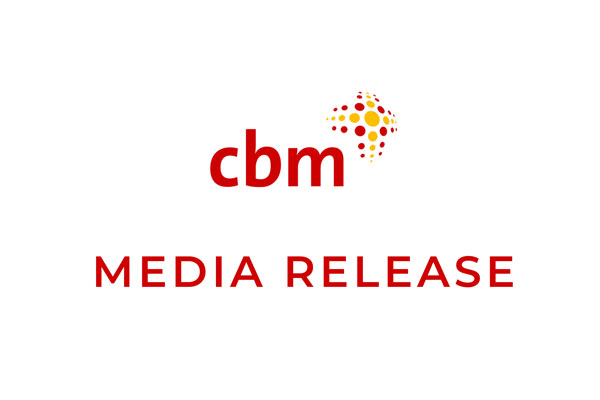Welcome commitment to disability equity when disasters strike
Media-release | October 17, 2024
CBM Australia and the Australian Disability and Development Consortium collectively welcome the Australian Government’s new Humanitarian Policy released this week.
“The new policy shows the Government is progressing Australia’s commitment to disability equity as a core focus of our international development and humanitarian programs”, commented Jane Edge, CEO of CBM Australia. “We welcome the clear direction to better integrate disability equity throughout the humanitarian program.”
Disability equity and rights is highlighted as a key area of focus for the future throughout the policy. More than 16 per cent of people worldwide live with a disability, and their experiences of disaster and humanitarian crises are shaped by their disabilities. People with disabilities are up to four times more likely to be injured or die in disasters – an avoidable situation which Australia’s new disability-focused humanitarian policy provides an opportunity to address.
“We welcome the government’s commitment to humanitarian efforts, including a commitment to reach those most marginalised in societies, who are often left behind,” stated Kerryn Clarke on behalf of the Australian Disability and Development Consortium. “Now we look to working with the government to see increased funding to make this bold policy a lived reality of support for those in times of humanitarian crisis.”
As the first standalone policy of its kind for the humanitarian program since 2016, it comes at the most unstable period globally since World War II. The policy needs to be immediately turned into action driven by increased funding, accountability measures and resourcing of DFAT to deliver on commitments.
CBM Australia and ADDC encourage the government continue to partner with Australian NGOs in high-risk settings, with the policy signalling a hesitation do so. Australian NGOs have the ability to reach local partners quickly and effectively in many conflict settings, that other partners may not be able to harness.
CBM Australia and ADDC warmly welcome the announcement of $9 million for the dire humanitarian crisis in Yemen and the initial investment of $5 million to support a newly established Asia-Pacific Regional Humanitarian Fund. We welcome the policy’s commitment to multiyear funding in protracted crises.
For media, contact Emma Hipango on 0424 908 506.
About CBM Australia
CBM Australia is a Christian international development agency, committed to ending the cycle of poverty and disability. In 2022, CBM Australia worked across 42 countries in the Pacific, Asia and Africa. It worked with 67 OPDs and influenced 30 organisations to be more disability inclusive.
CBM Australia is proud to have a partnership with DFAT as part of the Australian NGO Cooperation Program (ANCP) and is a member of the Australian Council for International Development. CBM’s Inclusion Advisory Group has also been DFAT’s technical partner on disability inclusion since 2010 under successive partnership agreements.
About The Australian Disability + Development Consortium (ADDC)
The Australian Disability and Development Consortium (ADDC) is an Australian based, international network focusing attention, expertise and actions on disability in the majority world, building on a human rights platform for disability advocacy.
ADDC has over 500 members including representatives from major Australian international development non-government organisations, the Australian disability movement and Organisations of People with Disabilities (OPDs), academia, and individuals.
AHP Phase III Bangladesh Impact Report: An Honest Account
The Rohingya crisis is the largest and most complex humanitarian crisis in the Indo-Pacific region, with more than 1.5 million people needing humanitarian assistance in Cox’s Bazar, Bangladesh.
The Australian Government’s Australian Humanitarian Partnership (AHP) Consortium brought together six partners: CAN DO (EKOTA), CARE, Plan, Oxfam, Save the Children, and World Vision during a three-year response program (2020 to 2023) to support Australia’s wider efforts to assist the Rohingya crisis.
This document gathers evidence of the progress and impacts that AHP Phase III interventions have achieved for people with disabilities. This document draws on focus group discussion data from people with disabilities in camps and host communities, AHP reports, case studies and key informant interviews with the AHP Disability Inclusion Working Group and the six AHP partner Disability Inclusion Focal Points.

https://www.cbm.org.au/media-release/welcome-commitment-to-disability-equity-when-disasters-strike
Related Stories

CBM Australia welcomes investment to bolster disability rights in the Indo-Pacific
Wednesday 3 December 2025 CBM Australia warmly commends the Albanese...

CBM Australia Welcomes the Australian-led Declaration for the Protection of Humanitarian Personnel
23 September 2025 – Over 100 countries have supported...

Taking a stand against intersecting bias impacting older people with disabilities in development and humanitarian contexts
A new policy report by The Fred Hollows Foundation...
